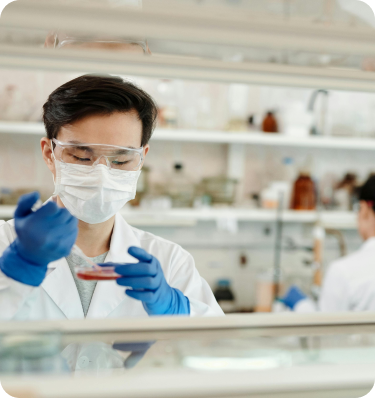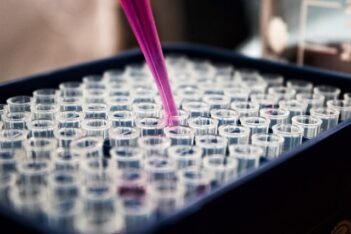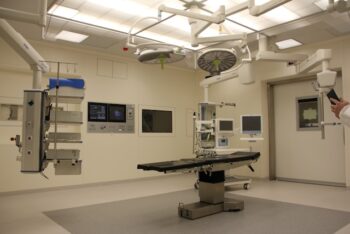Published on June 14, 2022 | With polycystic kidney disease, there is a 50% chance of passing the disease to children. Due to the high chance of passing PKD to future generations, many have questions about genetic testing. To better understand the role of genetic testing in people with ADPKD, we sought advice from an expert.

Neera Dahl, M.D., Ph.D., is the director of the Nephrology Clinical Trials Program at Yale School of Medicine in New Haven, Connecticut. Her expertise is in the diagnosis and management of inherited kidney disease, with a focus on ADPKD and other cystic kidney diseases that mimic ADPKD.
Why is genetic testing important for people with ADPKD?
ADPKD is primarily diagnosed on clinical grounds. When we see a patient who has a family history of the disease and then look at their imaging and see cysts in the kidneys, we typically make the diagnosis. But it may still be important to consider genetic testing because there are other inherited diseases that can cause cysts but that have a very different risk for end-stage kidney disease (ESKD).
For instance, autosomal dominant polycystic liver disease (ADPLD) also causes liver and kidney cysts. But we think the mutations that cause ADPKD (but not ADPLD) are those responsible for the progression to kidney failure. So, genetic testing may be important to provide information about the likely course of the disease.
Are there any other reasons for doing testing?
The other times to look at genetic testing is if someone in the family had a very different disease course than others. For instance, if your parent was in their 70s when they developed ESKD, but you’re 30 and already facing dialysis, then you may benefit from genetic testing to find out what’s behind that. Or if you have liver fibrosis (scarring) rather than cysts, that could be related to a mutation in some other gene besides PKD1 or PKD2, which cause ADPKD.
We also recommend testing for the 10% to 15% of patients with ADPKD who have no known family history. It’s important to make a genetic diagnosis to ensure that we’re dealing with ADPKD and not something that looks like it.
How does genetic testing affect treatment decisions?
Right now, our treatments are based on the risk of progression. Those at highest risk are the ones treated most aggressively and who may benefit from tolvaptan. However, the genetic diagnosis can also be very helpful in assessing the risk of progression based on the specific mutation and some clinical features.
Are there any negatives to doing genetic testing?
Our genetic information is protected by the Genetic Information Nondiscrimination Act. Genetic testing results cannot be used to determine medical insurance costs or availability. However, the law doesn’t protect against discrimination for life or disability insurance, which may require a review of all your medical information.
Is testing being used to tailor treatments?
Yes, and that’s one of the really exciting parts of where the field is going. There are therapies in development that will increase the expression of polycystin-1 or -2 proteins, which are defective or missing in ADPKD. Going forward, we may be doing genotyping (genetic testing) to determine which families will benefit from which therapies.
Where does preimplantation genetic testing come in?
This is something we discuss with all our young patients, because if one parent has ADPKD, they have a 50% chance of having a child with the disease. In preimplantation genetic testing, in vitro fertilization occurs, and before the embryo or embryos are implanted, they’re genetically tested for evidence of ADPKD. Those embryos without the genetic mutation are implanted. This allows the couple the opportunity to feel they’re doing everything they can to prevent the disease in the next generation.
Want to see more articles like this? Read the full issue of our magazine, PKD Life, and subscribe to future issues here. Also, be sure to register for PKDCON 2022 to attend Dr. Dahl’s session, “Understanding Polycystic Liver Disease.”












